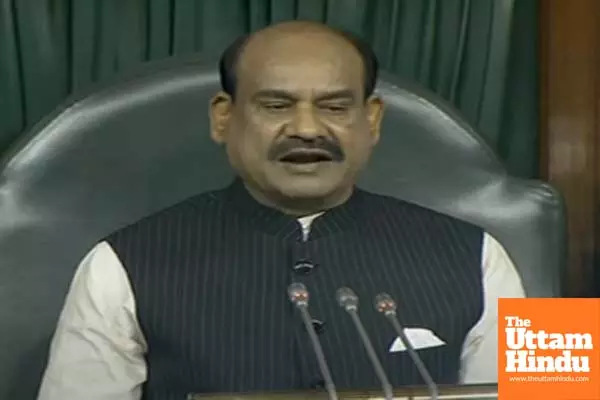
Oppn MPs to meet LS Speaker to protest Waqf JPC chief Pal's 'unilateral' decisions

New Delhi (The Uttam Hindu): Opposition Members of Parliament (MPs) who are part of the 31-member Joint Parliamentary Committee (JPC) reviewing the Waqf (Amendment) Bill, 2024 are set to meet Lok Sabha Speaker Om Birla on Tuesday to express their discontent over the alleged 'one-sided' actions of the committee's chairman, BJP MP Jagdambika Pal, and his efforts to 'force through' the proceedings. They have also threatened to disassociate themselves from the JPC entirely if this continues. Opposition parties raised a formal objection to the ongoing deliberations of the JPC on the Waqf Bill, 2024, accusing the government of rushing through the legislative process and undermining due parliamentary procedure.
In a letter addressed to Lok Sabha Speaker Birla, the Opposition members expressed concerns over the frequency and pace of the meetings, claiming that the Bill, which aims to amend key provisions concerning Waqf institutions in India, is being pushed without proper scrutiny and consultation. The letter, signed by several key Opposition leaders, underscores the lack of sufficient time for proper study and deliberation on the amendments proposed in the Bill. The Opposition leaders argue that the JPC is meeting too often, without allowing members time to adequately examine the issues raised by various stakeholders, including Muslim community organisations and government departments. They stressed that such a fast-tracked approach undermines the thorough legal analysis necessary for such significant legislation, especially when revisiting the Waqf Acts of 1995 and 2013.
The Opposition’s primary concern revolves around the potential erosion of the secular principles embedded in the earlier Waqf legislation, which they argue, have been carefully crafted to balance religious freedoms with constitutional safeguards. "The legal exercise being conducted through this Bill appears to be a surreptitious attempt to dilute previous laws made by Parliament, laws which protect the secular credentials of our Constitution," the letter reads. Opposition members also highlighted that more than 100 amendments have been introduced in the new Waqf Bill, as opposed to the government's claim of only 44 changes. They fear that these amendments could fundamentally alter the religious and moral fabric of Waqf institutions, particularly the Waqf Boards, which they believe could be subjected to increased political control and interference.
Pointing out the speed at which the JPC meetings are being conducted, the Opposition expressed dissatisfaction with the lack of a reasonable time gap between sittings, which they claim is essential for thorough preparation and informed participation in the committee's meetings. The letter references the legal maxim 'lex prospicit non respicit (the law looks forward, not backwards)', stressing that proper consideration should be given to past judicial decisions and legislative wisdom before making changes to the law. The Opposition members also took issue with the unilateral decision-making process of the JPC Chairman, alleging that dates for consecutive sittings are being scheduled without proper consultation with the committee members. They argue that this approach makes it impossible for MPs to adequately prepare for their interactions with witnesses and experts.
In a pointed criticism, the Opposition warned that the JPC should not be treated as a "rubber stamp" to push the government's desired outcome. They cautioned that bypassing established parliamentary procedures, driven by the government’s "majority," could result in a severe undermining of democratic norms and constitutional principles. The letter concludes with a warning from the MPs that if these concerns are not addressed, the Opposition members may have no choice but to disassociate themselves from the JPC entirely. "We are being stonewalled in our attempts to engage meaningfully with the process," the letter states, emphasizing that the Opposition’s commitment to the rule of law and constitutional values could not allow them to participate in what they consider an undemocratic process.

